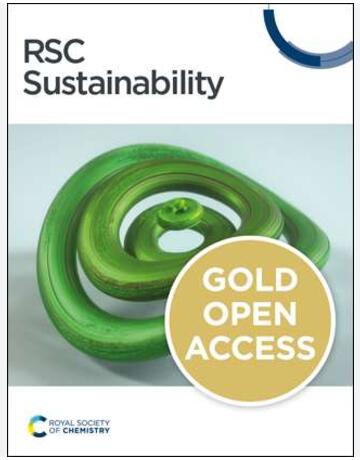The Impact of Waste Application on the Reclamation and Biological Life of Degraded Soils
IF 3.3
3区 环境科学与生态学
Q2 ENVIRONMENTAL SCIENCES
引用次数: 0
Abstract
This work concerns the assessment of soil reclamation and its impact on biological life in areas destroyed by the sulfur industry in Jeziórko. Sulfur extraction using the borehole method causes enormous destruction to the soil environment. Among the many forms of degradation, the most pronounced are the chemical transformations of the environment and the disturbances in water relations in large areas, which could theoretically impact areas not within the direct range of the mining plant. This work aimed to assess the condition of biological life in soil reclaimed with waste in areas devastated by the sulfur industry in Jeziórko. The reclamation of these soils was difficult but necessary due to the complete disappearance of biological life. Appropriate actions were taken to restore and improve the properties of the soil, which resulted in an improvement in their production capacity. Reclamation was carried out, among other techniques, by deacidifying the soil using post-flotation lime and fertilizing the soil with municipal sewage sludge and post-use mineral wool. Studies have shown an improvement in many soil properties, such as its physical, water, chemical, and biological properties. The implemented reclamation methods significantly influenced, among other things, the density and water properties of the degraded soil. The soil reclaimed with mineral wool and sewage sludge recorded the highest density and water capacity. Applying mineral wool to the degraded soil influenced the changes in the analyzed physical and water properties. The obtained research results also show the beneficial effect of mineral wool and sewage sludge on the increase in organic carbon content. In the soil treated with these substances, the organic carbon content ranged from 13.60 g·kg−1 to 14.30 g·kg−1. It is shown that reclamation has had a considerable impact on and is essential for biological life in Jeziórko.废物利用对退化土壤的复垦和生物生命的影响
这项工作涉及对土壤改良及其对杰济奥尔科(Jeziórko)被硫磺工业破坏地区的生物影响的评估。使用钻孔法提取硫磺对土壤环境造成了巨大破坏。在多种退化形式中,最明显的是环境的化学变化和大面积水关系的紊乱,理论上可能会影响到不在采矿厂直接范围内的地区。这项工作的目的是评估杰济奥尔科(Jeziórko)受硫磺工业破坏地区用废料开垦的土壤中的生物状况。由于生物完全消失,这些土壤的复垦工作十分困难,但又十分必要。为恢复和改善土壤的特性采取了适当的措施,从而提高了土壤的生产能力。除其他技术外,还使用浮选后石灰对土壤进行脱酸处理,并用城市污水污泥和使用后矿棉对土壤进行施肥。研究表明,土壤的物理、水、化学和生物等许多特性都得到了改善。除其他外,所采用的复垦方法对退化土壤的密度和水特性有很大影响。使用矿棉和污水污泥复垦的土壤密度和水容量最高。在降解土壤中使用矿棉会影响所分析的物理和水特性的变化。研究结果还显示了矿棉和污水污泥对增加有机碳含量的有利影响。在使用这些物质处理过的土壤中,有机碳含量从 13.60 g-kg-1 到 14.30 g-kg-1 不等。这表明,开垦对 Jeziórko 的生物生活产生了相当大的影响,也是必不可少的。
本文章由计算机程序翻译,如有差异,请以英文原文为准。
求助全文
约1分钟内获得全文
求助全文
来源期刊

Sustainability
ENVIRONMENTAL SCIENCES-ENVIRONMENTAL SCIENCES
CiteScore
6.80
自引率
20.50%
发文量
14120
审稿时长
17.72 days
期刊介绍:
Sustainability (ISSN 2071-1050) is an international and cross-disciplinary scholarly, open access journal of environmental, cultural, economic and social sustainability of human beings, which provides an advanced forum for studies related to sustainability and sustainable development. It publishes reviews, regular research papers, communications and short notes, and there is no restriction on the length of the papers. Our aim is to encourage scientists to publish their experimental and theoretical research relating to natural sciences, social sciences and humanities in as much detail as possible in order to promote scientific predictions and impact assessments of global change and development. Full experimental and methodical details must be provided so that the results can be reproduced.
 求助内容:
求助内容: 应助结果提醒方式:
应助结果提醒方式:


